Introduction: The Growing Interest in Natural ADHD Support and Brain Health
In a world increasingly aware of the importance of mental wellness, many individuals and families are exploring natural strategies to support focus, cognitive function, and emotional balance, particularly when it comes to managing conditions like Attention-Deficit/Hyperactivity Disorder (ADHD). While conventional treatments such as medication and therapy play a critical role, a complementary interest has blossomed around brain foods, herbal remedies, and nutrition-based interventions. Understanding how diet affects focus, mental stamina, and the ability to concentrate is now seen as an integral part of holistic cognitive health.
You may also like: Where to Buy Bacopa Monnieri: How to Find Quality Supplements for Cognitive and Memory Support
Herbs have long been revered in traditional medicine systems for their potential brain-boosting benefits. Today, scientific inquiry is beginning to catch up with ancient wisdom, exploring how specific herbs might offer gentle, supportive effects for those managing ADHD symptoms. In tandem with these natural interventions, a broader conversation about nutrition and brain function has emerged. Questions such as “does diet help with your alertness?” and “what foods make you smarter?” now guide many personal health journeys.
In this article, we will explore the best herb for ADHD, investigate natural strategies that may support focus, and delve into the essential role that brain foods, snacks to improve focus, and foods that promote brain healing play in nurturing a sharper, more resilient mind.
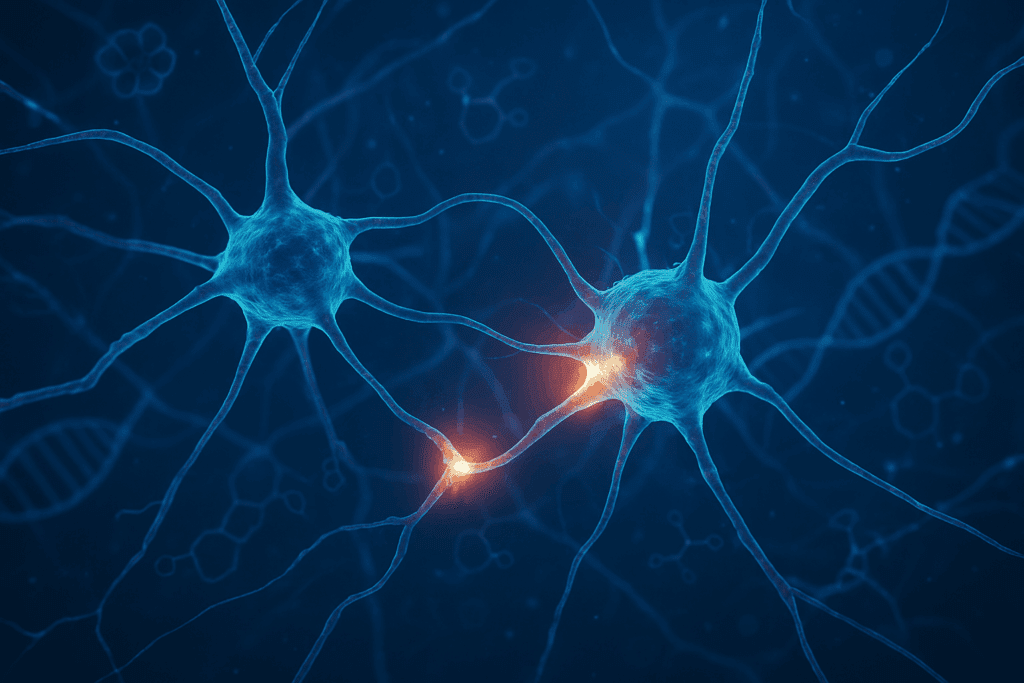
Understanding ADHD and Its Impact on Focus and Brain Function
Before we can meaningfully explore natural options, it’s essential to understand the nature of ADHD. ADHD is a neurodevelopmental disorder characterized by symptoms such as inattention, impulsivity, and hyperactivity. These symptoms can disrupt daily functioning, academic performance, work productivity, and interpersonal relationships. Although ADHD presents differently across individuals, a common thread is a struggle with sustained attention and executive function.
Many adults and children with ADHD find that their cognitive performance is heavily influenced by their nutritional status. Research increasingly points to the idea that nutrition and brain function are intricately linked. Specifically, brain foods that nourish neurotransmitters, regulate inflammation, and support healthy blood flow may be critical adjuncts to other ADHD management strategies.
Moreover, understanding how diet affects focus is not just about what one eats but also about how the body processes and utilizes nutrients. Poor blood sugar control, inflammation, and nutrient deficiencies can exacerbate cognitive difficulties. As we investigate herbs that may support ADHD, it is important to frame them as part of a broader lifestyle approach that includes choosing foods that help you focus and concentrating on foods that make you smarter through nutrient density.
The Role of Nutrition in ADHD: Why Diet and the Brain Are Interconnected
The phrase “you are what you eat” holds particular truth when considering brain health. The human brain, though only about two percent of total body weight, consumes roughly 20% of the body’s energy resources. This disproportionately high demand underscores the importance of providing the brain with foods that can sustain optimal function.
Emerging evidence suggests that ADHD symptoms may be influenced by the quality of the diet. Diets high in refined sugars, artificial additives, and processed foods have been linked to worsening behavioral symptoms. Conversely, diets rich in brain foods—such as fatty fish, leafy greens, berries, and nuts—may promote more stable moods, better concentration, and improved executive function.
Foods that promote focus, particularly foods that help you concentrate, are often rich in antioxidants, healthy fats, vitamins, and minerals. Omega-3 fatty acids, magnesium, zinc, and B vitamins have all been implicated in supporting cognitive function. Thus, brain food snacks, including healthy brain food snacks like walnuts or blueberries, can serve as strategic tools for enhancing mental clarity throughout the day.
The concept of food and brain development is particularly vital during childhood and adolescence, but it remains relevant across the lifespan. For seniors, in particular, consuming brain foods for seniors may not only enhance focus but also support memory and cognitive resilience.
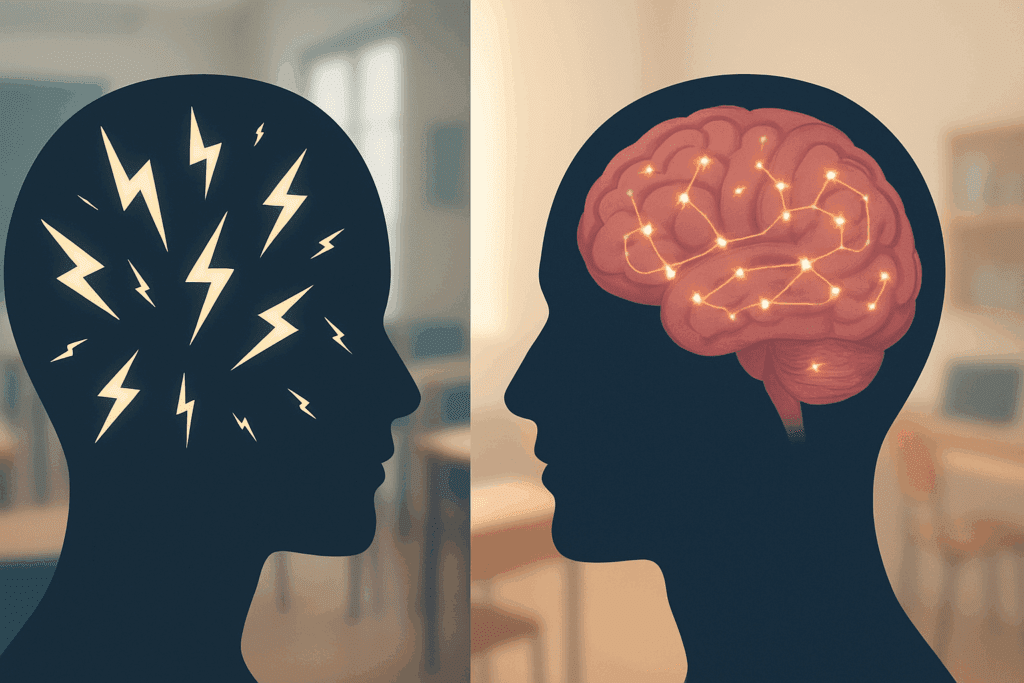
Exploring the Best Herbs for ADHD Support
Among the growing list of natural remedies under investigation, several herbs stand out for their potential to support cognitive function, attention, and emotional regulation. While herbs should not replace prescribed medical treatment, they can be powerful allies when used thoughtfully and in consultation with healthcare providers.
One of the most widely studied herbs for cognitive support is Bacopa monnieri, often referred to simply as Bacopa. Bacopa has been used for centuries in Ayurvedic medicine to enhance memory, learning, and concentration. Modern research supports these traditional claims, indicating that Bacopa’s antioxidant properties and effects on neurotransmitter regulation may make it a promising herb for ADHD symptom support.
Another compelling candidate is Ginkgo biloba. Ginkgo is renowned for its ability to enhance blood flow to the brain, improve oxygenation, and exert neuroprotective effects. Studies have suggested that Ginkgo may help with attention, executive function, and working memory, although more research is needed to determine its specific efficacy in ADHD populations.
Rhodiola rosea, an adaptogenic herb, also deserves attention. Known for its ability to modulate stress responses and reduce mental fatigue, Rhodiola may indirectly benefit focus and emotional resilience in individuals with ADHD.
Each of these herbs operates through slightly different mechanisms, making it possible to tailor natural interventions based on individual needs. As with all supplements, quality sourcing, appropriate dosing, and professional supervision are essential.
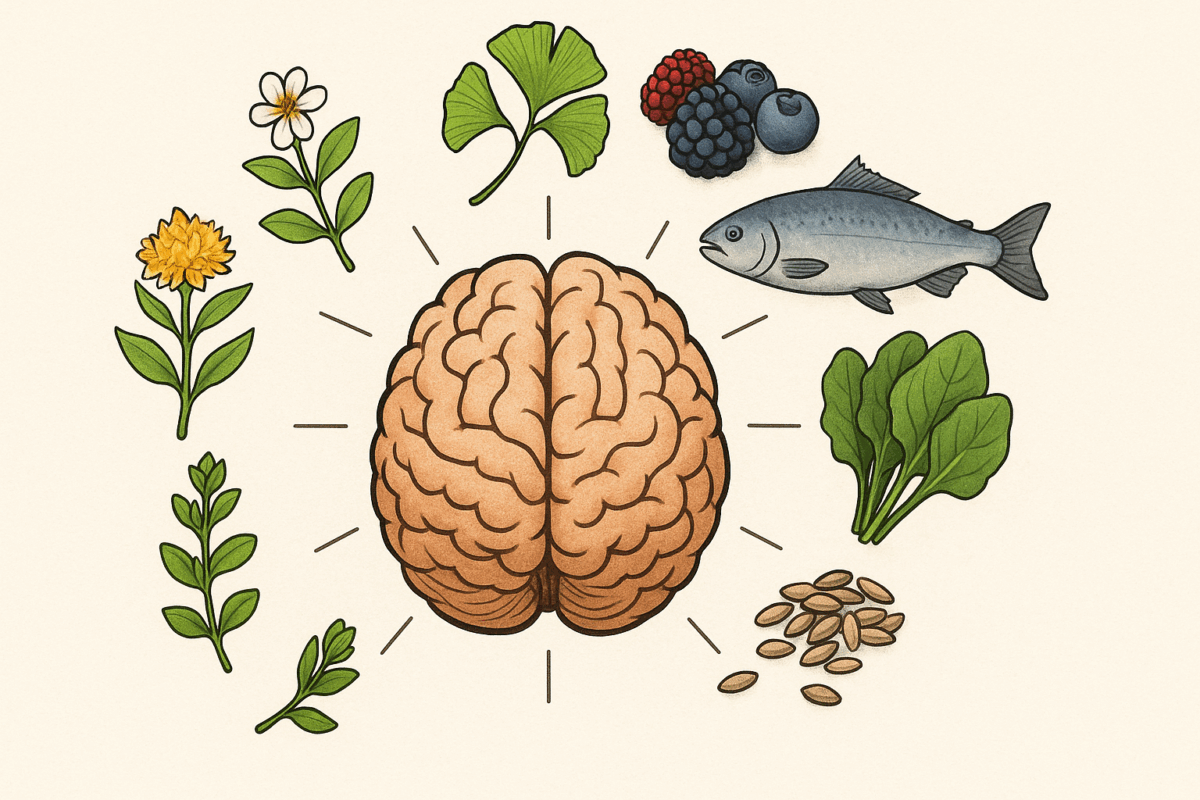
The Synergy of Herbs and Brain Foods: Building a Comprehensive Cognitive Support Plan
While herbs offer valuable support, they are most effective when integrated into a comprehensive brain health strategy that prioritizes nutrition. Just as one might seek out the best foods for cognitive function, one should also look for foods that will make you smarter and strengthen the brain’s resilience.
Combining herbal support with a diet rich in brain healing foods amplifies the benefits of both. For example, pairing Bacopa supplementation with a diet abundant in antioxidant-rich berries, leafy greens, and fatty fish can create a synergistic environment for brain repair and neurotransmitter balance. Similarly, incorporating brain food snacks like pumpkin seeds and dark chocolate into the daily routine can provide steady fuel for focus.
Notably, when planning a brain-boosting diet, one should consider “what are the 10 best brain foods?” Common candidates include salmon, blueberries, turmeric, broccoli, pumpkin seeds, dark chocolate, nuts, oranges, eggs, and green tea. These foods not only provide critical nutrients for brain structure and function but also offer antioxidant and anti-inflammatory properties that protect cognitive vitality.
The intersection of diet and the brain is undeniable. Building meals and snacks around foods that make you focus and foods that promote focus can provide foundational support for anyone seeking cognitive enhancement, including individuals managing ADHD.
Best Brain Foods to Enhance the Effectiveness of Herbal ADHD Strategies
Choosing the right brain foods can significantly enhance the efficacy of herbal interventions for ADHD. Healthy fats, complex carbohydrates, lean proteins, and colorful fruits and vegetables should be central to this dietary approach. Fatty fish such as salmon and sardines provide abundant omega-3 fatty acids, which are essential for neurotransmitter fluidity and synaptic health.
Leafy greens like spinach and kale supply a rich source of folate and magnesium, two nutrients critical for mood regulation and cognitive stability. Berries, especially blueberries, are celebrated as some of the best fruits for brain health due to their high antioxidant content, which combats oxidative stress linked to cognitive decline.
Incorporating brain food snacks like walnuts, which contain alpha-linolenic acid (a plant-based omega-3), and pumpkin seeds, which are high in magnesium and zinc, can provide steady mental energy throughout the day. In fact, these snacks not only satisfy hunger but also serve as functional tools for enhancing brain performance.
When considering foods that help you concentrate and foods that make u smarter, it is essential to focus on diversity and nutrient density. Building colorful plates ensures a wide range of vitamins, minerals, and phytonutrients necessary for optimal brain health. Through careful dietary planning, one can create a nutritional foundation that enhances the natural efficacy of herbs designed to support focus and mental clarity.
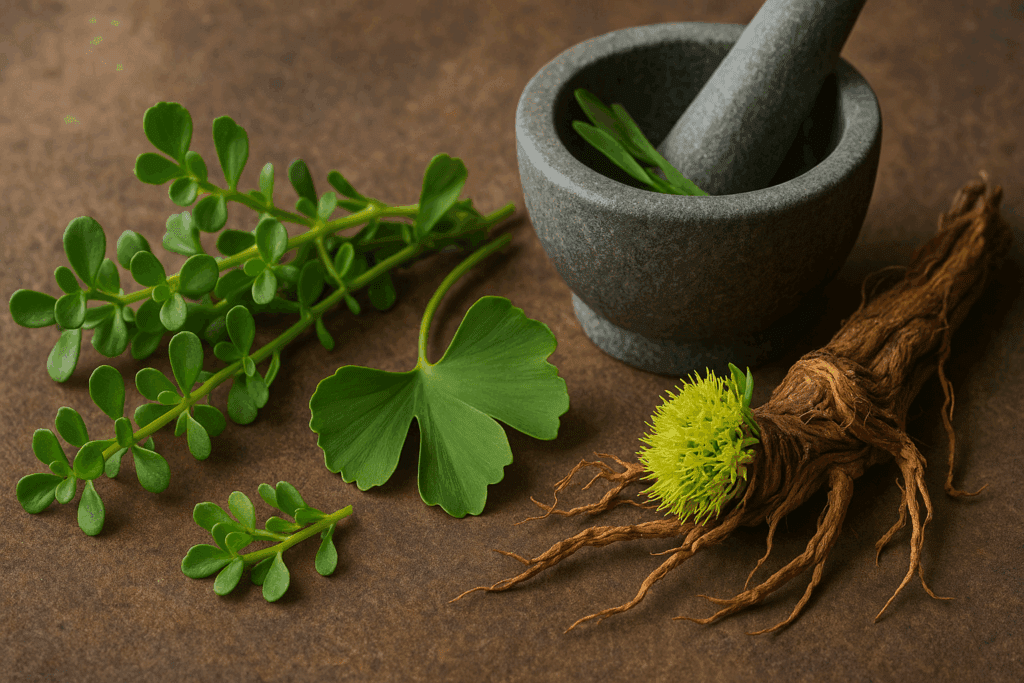
FAQ: Best Herb for ADHD and Natural Strategies for Focus and Brain Health
What herbs show the most promise for supporting focus naturally in ADHD?
Several herbs have shown significant promise in supporting focus naturally among individuals with ADHD. Bacopa monnieri, often recommended as a brain food for studying, helps improve memory consolidation and mental clarity through its adaptogenic effects. Rhodiola rosea offers another pathway, enhancing alertness and reducing cognitive fatigue, thus answering the question: does diet help with your alertness? Ginkgo biloba, known for enhancing cerebral blood flow, has also emerged as a complementary option to foods that make you focus. Combining these herbs with the best brain foods amplifies their effects, creating a synergistic approach to mental resilience.
How does combining brain foods and herbs enhance ADHD symptom management?
The synergy between brain foods and specific herbs lies in their ability to address multiple cognitive pathways simultaneously. While foods that help you focus provide vital nutrients essential for neurotransmitter function, herbs can modulate stress responses and support brain healing processes. For instance, pairing Bacopa supplementation with healthy brain food snacks like walnuts or blueberries can accelerate neural repair and plasticity. Understanding nutrition and brain function allows individuals to strategically leverage both food and herbal interventions for optimal outcomes. Thus, asking “what are some brain foods?” becomes crucial when designing a holistic plan.
Are there specific brain food snacks that pair well with herbal ADHD supplements?
Yes, selecting targeted brain food snacks can significantly boost the effectiveness of herbal supplements for ADHD. Snacks to improve focus such as roasted pumpkin seeds, dark chocolate with high cacao content, and fresh blueberries deliver quick yet sustained cognitive benefits. These foods that help you concentrate are packed with magnesium, antioxidants, and flavonoids that nourish the brain’s synaptic activity. Integrating brain food for studying alongside herbs like Rhodiola can optimize mental energy during periods of high demand. When considering the best foods for focus, these snack choices stand out as both delicious and functional.
Can nutrition influence how herbs for ADHD function in the body?
Absolutely. Nutrition and the brain share a complex, bidirectional relationship that significantly impacts how herbal remedies function. A diet deficient in essential fatty acids, vitamins, and minerals can blunt the efficacy of even the best cognitive herbs. Foods that will make you smarter, such as salmon, avocados, and leafy greens, enhance cellular membrane integrity, facilitating better absorption and action of herbal compounds. This interplay underscores why understanding food and brain development is critical when implementing natural interventions. Those seeking lasting improvements must prioritize both diet and the brain’s unique nutritional needs.
What food can make you smarter while supporting ADHD-focused therapies?
Foods that make you smarter often possess anti-inflammatory, antioxidant, and neuroprotective properties. For example, wild-caught salmon, rich in omega-3 fatty acids, not only supports cardiovascular health but also enhances attention span and cognitive flexibility. Turmeric, another potent brain food, contains curcumin, a compound known to cross the blood-brain barrier and reduce neuroinflammation. Pairing these foods with herbs that support neurotransmitter balance creates a potent environment for cognitive advancement. Recognizing the best foods for cognitive function, including nuts, seeds, and berries, ensures comprehensive support for brain performance.
How does diet affect focus compared to herbal supplements alone?
Diet plays an irreplaceable role in sustaining focus and mental energy, often outperforming standalone herbal supplements over time. Foods that promote focus, such as broccoli, walnuts, and eggs, provide continuous nourishment essential for neurotransmitter health. Herbal supplements, while powerful, often work best when layered onto a foundation built with the best diet for focus. Unlike short-term cognitive enhancers, brain healing foods deliver long-lasting structural and functional benefits. Therefore, optimizing nutrition and brain function becomes a vital first step before exploring supplementary options.
What are the best fruits for brain health to integrate into an ADHD-supportive diet?
When designing a diet that supports ADHD symptom management, incorporating the best fruits for brain health is essential. Blueberries, rich in anthocyanins, support neuroplasticity and memory formation, making them prime brain food for studying. Avocados offer healthy fats that maintain neuronal integrity, essential for foods that make u smarter. Bananas, loaded with vitamin B6, play a role in dopamine production, crucial for regulating attention and mood. By combining these fruits with foods that help you concentrate, individuals can create a delicious and functional dietary strategy. Including a diverse range of colorful fruits ensures a spectrum of nutrients that fuels robust cognitive health.
Are there brain foods specifically recommended for seniors managing ADHD-like symptoms?
Yes, brain foods for seniors can also serve individuals experiencing ADHD-like cognitive challenges later in life. Fatty fish, spinach, and berries continue to top the list of foods that help you focus, especially as neuroplasticity naturally declines with age. Nuts and seeds provide essential oils critical for maintaining myelin sheaths, vital for quick neural communication. These choices not only align with foods that will make you smarter but also offer protective effects against age-related cognitive decline. By emphasizing the best brain foods, seniors can fortify their mental resilience while addressing focus-related issues.
How can parents use food for focus to help children with ADHD symptoms?
Parents can strategically use food for focus by designing meals and snacks that stabilize blood sugar and provide essential brain nutrients. Offering brain food snacks like nut butter on whole-grain crackers or yogurt with chia seeds ensures steady mental energy. Children benefit immensely from foods that make you concentrate, such as eggs in the morning and leafy greens at lunch. Importantly, introducing kids to what are the 10 best brain foods through fun, colorful meal presentations encourages lifelong healthy eating habits. By embedding nutrition and brain function education early, parents empower children with natural tools for cognitive success.
What emerging trends in nutrition and ADHD management are gaining attention?
Emerging trends increasingly emphasize individualized nutrition plans tailored to genetic predispositions and gut microbiome health. New research is exploring how brain foods and herbs can be customized to an individual’s unique neurotransmitter profile, enhancing outcomes beyond a one-size-fits-all approach. Interest in functional foods, such as adaptogenic mushroom powders and omega-3-enriched eggs, is reshaping how we view foods that help you concentrate and foods that promote focus. Additionally, brain food snacks fortified with nootropic compounds are becoming mainstream, signaling a blending of traditional and innovative strategies. As the science behind nutrition and brain development advances, these personalized approaches may redefine the standard of care for ADHD symptom management.
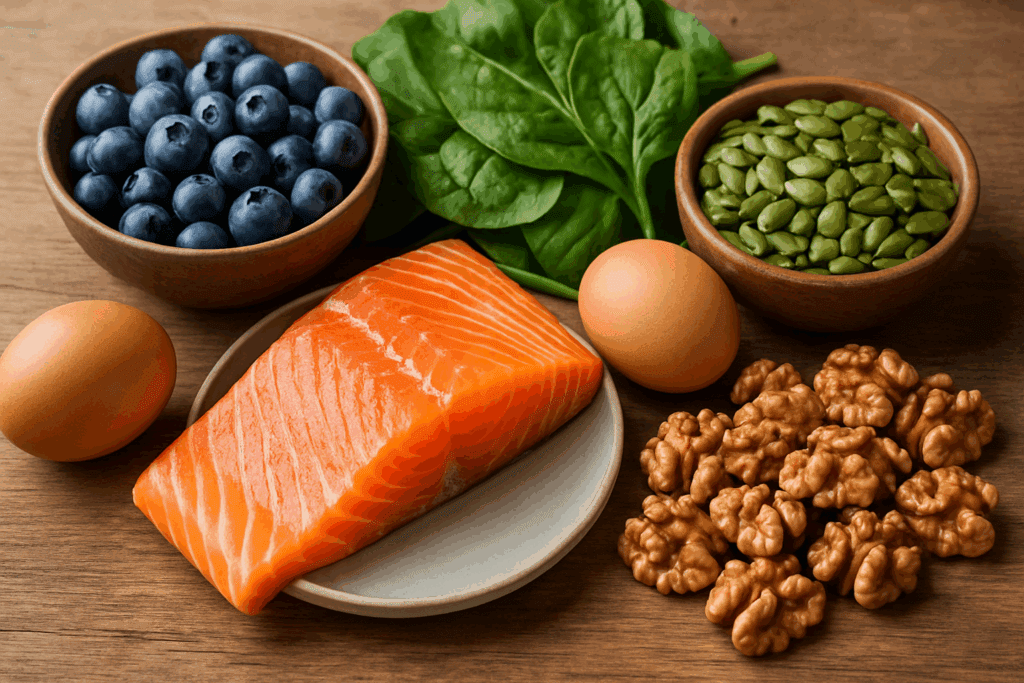
How Does Diet Affect Focus? The Scientific Link Between Nutrition and Cognitive Performance
Scientific research continues to illuminate how diet and the brain are intimately connected. Nutrients act as the building blocks for neurotransmitters, the chemical messengers responsible for communication within the brain. A deficiency in key nutrients can impair neurotransmitter production and function, leading to difficulties with attention, memory, and emotional regulation.
For example, insufficient intake of omega-3 fatty acids has been associated with cognitive impairments, including poor attention and working memory. Similarly, deficiencies in iron, magnesium, and zinc have been implicated in the exacerbation of ADHD symptoms. Conversely, diets rich in brain foods have been shown to promote neuroplasticity, the brain’s ability to form and reorganize synaptic connections, which is vital for learning and memory.
Thus, answering the question “how does diet affect focus?” requires recognizing that food is not merely fuel but also information. Every bite sends chemical signals that influence brain function. By choosing foods that help you focus and foods that make you concentrate, one can strategically modulate brain chemistry and cognitive performance.
It is not surprising, then, that brain healing foods play a pivotal role in ADHD management. The strategic consumption of foods that will make you smarter can support a healthy gut-brain axis, regulate inflammatory pathways, and bolster neurotransmitter balance, all of which contribute to sharper focus and emotional resilience.
Further Reading:
The Top 5 Natural Remedies for ADHD
Natural Relief for Symptoms: Top Herbs for ADHD Treatment and Management
Exploring Natural Solutions for Adult ADHD — How To Find Relief


